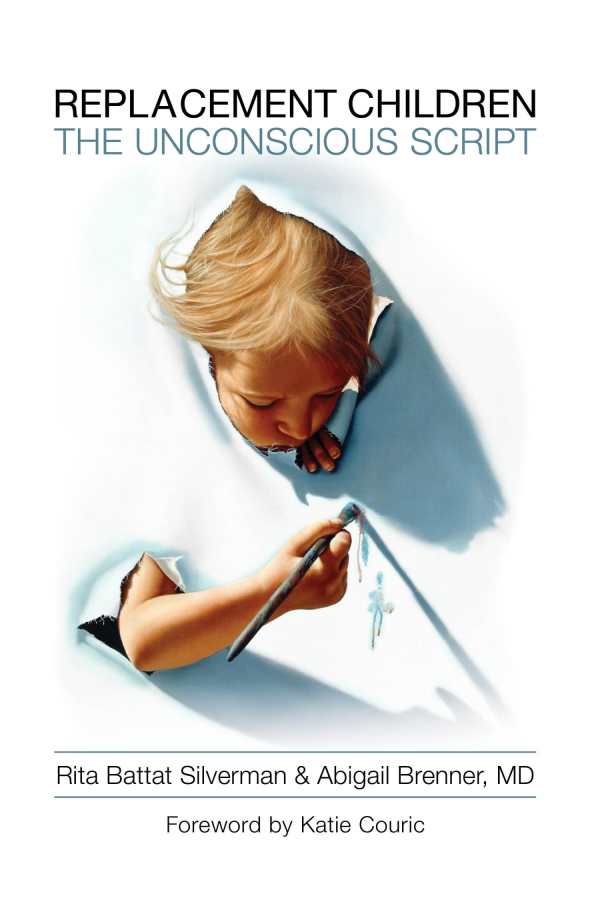
Replacement Children
The Unconscious Script
Poignant stories and psychological insights illuminate the family challenges of losing a child, in this thoughtful psychological work.
Replacement Children: The Unconscious Script deals thoughtfully with a family dynamic that is all too common, the psychological substitution of one child for another who has died or is absent. As the authors note, the consequences for the replacement child can vary widely, from impacts that are barely perceptible, or are even positive, to those that are debilitating or devastating.
This sympathetic, accessible, and informed viewpoint comes largely through the voices of those who were themselves replacement children. Authors Rita Battat Silverman and Abigail Brenner have assembled a variety of personal stories from adults who reflect on those experiences. Their accounts are candid, heartfelt, and often poignant. Some have led lives dominated by survivor guilt, feelings of inadequacy, or perfectionism, while many others have come to terms with family grief and have effectively established their own identities.
An early chapter surveys an array of famous people who were replacement children, including Vincent Van Gogh, Kathryn Hepburn, Salvador Dali, Carl Jung, and Barbara Walters. As this chapter notes, with a hint of irony, there are several typical “ways out” for a replacement child: madness, creativity, becoming a psychologist, or individuation, which is “discovering a way to one’s own self.”
The authors state that this is a topic in need of considerably more attention and awareness. Their audience includes mental health practitioners, families, and individuals personally living out the role of a replacement child. The book is most successful in addressing the needs of the latter. The expressive, sincere stories told by those who have lived as replacement children will bring insight, reassurance, and comfort to others who have had similar experiences.
The book also raises thought-provoking and helpful questions for therapists to consider, and the introduction by Katie Couric underscores the universal importance of dealing with loss in families and fostering hope.
The book is somewhat less successful in addressing parents who have lost a child and who may be projecting their unresolved grief onto another child. While advice about valuing each child as an individual and encouraging open communication is sound, it is hardly groundbreaking.
As a whole, however, Replacement Children is a sincere, wide-ranging, and enlightening review of an important topic that touches countless individuals and families.
Reviewed by
Kristen Rabe
Disclosure: This article is not an endorsement, but a review. The publisher of this book provided free copies of the book to have their book reviewed by a professional reviewer. No fee was paid by the publisher for this review. Foreword Reviews only recommends books that we love. Foreword Magazine, Inc. is disclosing this in accordance with the Federal Trade Commission’s 16 CFR, Part 255.
